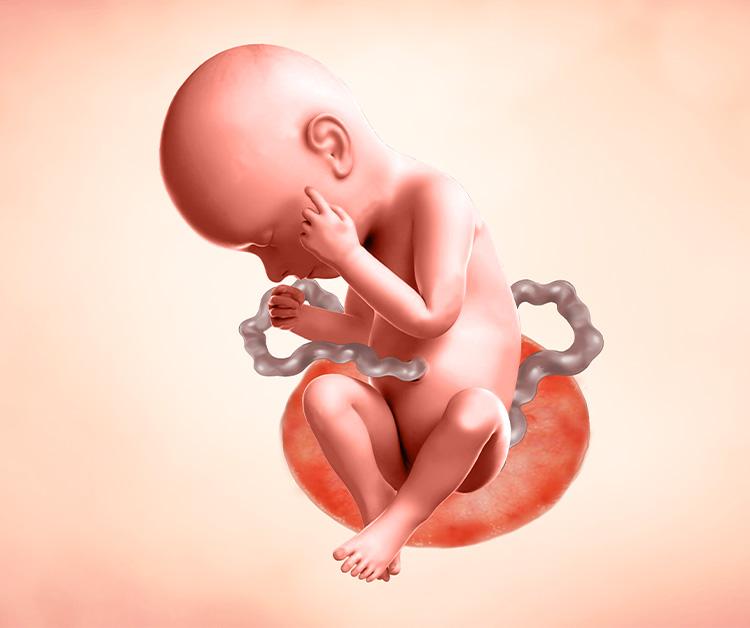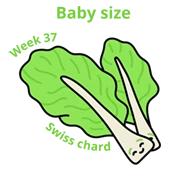Due to maintenance, rewards points for receipt uploads will be delayed. Thank you for your patience!

6 Minute Read
At this stage of your journey, new developments are beginning to unfold. Check out this week-by-week guide to find out what’s in store for your baby and your body in week 37 of pregnancy.
With week 36 of your pregnancy complete, you’re on week 38. Enjoy it, as week 38 is on the horizon!
One of the most exciting things about pregnancy is how many changes you’ll experience with your little one over the span of just 7 days! Here’s some tips and tricks to keep on top of all that’s happening.

Your little one is in the fetal position. This means the baby's chin is tucked down and their knees and arms are hugged close to the chest. All of this curling helps your baby take up less space in their crowded home. It also means your peanut is moving around less throughout the day.
Labor could begin any day now, or it may still be weeks away. Keep an eye out for these symptoms of labor at 37 weeks, which could mean your baby’s debut will be right around the corner.
| 37 Weeks Pregnant |
|---|
|
Baby Weight 6.5 lbs |
|
Baby Length 20 inches from crown to heel |
|
Baby Size Comparable to a bunch of Swiss chard |
During week 37 of pregnancy, your body is changing quickly. As your baby grows, you will too, and there are certain pregnancy symptoms you may experience at this time.
It's nesting time. In spite of your growing belly and increasing discomfort at 37 weeks pregnant, you might be surprised by an overwhelming urge to clean, cook, or get organized. If so, you’re nesting, which is perfectly normal at this point in your pregnancy. Indulge that instinct a little, but don’t overdo it—you need to save your strength for the birth process.
Even at 37 weeks pregnant, your baby’s head continues to grow. At birth, it will be a half-inch larger than their chest! What’s your baby doing with all that brain room? In part, they’re improving the connections between the neurons and muscles, which is allowing your little one to develop fine motor skills, like grasping a tiny toe. But birth isn’t the end of brain development.
Through the first two years of life, your baby’s brain develops more rapidly than it ever will again. In fact, the brain grows 175% in the first year of life. Remember that nutrition (with brain-nourishing DHA in breast milk or formula) and stimulation (through everyday learning activities) are important ways to support your baby’s brain development.
The issue: Unless you're planning on a home delivery, you've probably got a few days in the hospital in your near future.
The solution: While things are calm, it's a good time to start packing for the hospital to make your stay homier. Wondering what to pack? Here are some items to put on your list.
Learn more about your pregnancy, including pregnancy planning and pregnancy nutrition to feel prepared to continue this magical adventure. You’re armed with the facts, what to do, and now you can take time to connect with the little one growing inside you.
With week 36 in the rearview mirror and week 37 going strong, look to the future and what's coming up in week 38!
All information on Enfamil, including but not limited to information about health, medical conditions, and nutrition, is intended for your general knowledge and is not a substitute for a healthcare professional's medical identification, advice, or management for specific medical conditions. You should seek medical care and consult your doctor or pediatrician for any specific health or nutrition issues. Never disregard professional medical advice or delay seeking medical treatment, care, or help because of information you have read on Enfamil.